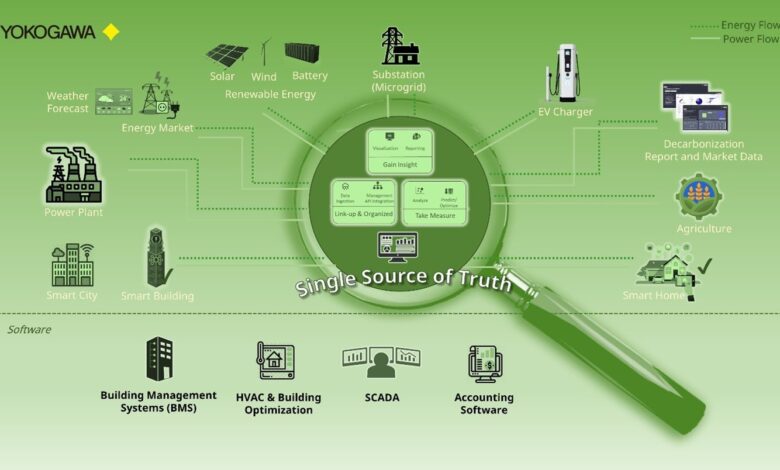Optimizing Buildings: The Power of Advanced Management Systems

In a world where efficiency is everything, advanced building management systems (BMS) are transforming how we live and work. From saving on energy bills to enhancing comfort, these systems offer numerous benefits. This blog post will explore how modern BMS can optimize buildings and why they are essential for home and building owners, especially those focusing on HVAC systems.
What Are Advanced Building Management Systems?
Advanced building management systems are centralized platforms that control and monitor various building functions such as heating, ventilation, air conditioning (HVAC), lighting, security, and more. By integrating different subsystems into one cohesive unit, these systems offer real-time data and automation to ensure optimal performance.
Why BMS Are Gaining Popularity
With the increasing need for energy efficiency and sustainability, BMS have become a go-to solution for modern buildings. They not only reduce operational costs but also contribute to a greener environment by minimizing energy waste.
Key Components of BMS
A typical BMS includes sensors, controllers, and software. Sensors gather data, controllers execute commands, and software provides a user-friendly interface for monitoring and control. Together, these components create a robust system that enhances building operations.
Benefits of Implementing BMS
Implementing a BMS can bring numerous advantages to both home and building owners. Here are a few key benefits:
Energy Efficiency
One of the most significant advantages of BMS is energy efficiency. By optimizing HVAC systems, lighting, and other electrical components, BMS can significantly reduce energy consumption.
Enhanced Comfort
Advanced BMS offer precise control over environmental conditions, ensuring optimal comfort. Whether it’s maintaining the perfect temperature or controlling humidity levels, these systems make life more comfortable.
Cost Savings
While the initial investment in a BMS may seem high, the long-term savings are substantial. Reduced energy bills, lower maintenance costs, and improved system longevity all contribute to cost savings.
How BMS Improve HVAC Systems
Heating, ventilation, and air conditioning systems are critical components of any building. Here’s how BMS can enhance their performance:
Optimized Performance
BMS can monitor and control HVAC systems to ensure they operate at peak efficiency. By adjusting settings based on real-time data, these systems can reduce energy consumption and extend the lifespan of HVAC equipment.
Predictive Maintenance
Advanced BMS can predict when HVAC components are likely to fail, allowing for timely maintenance. This reduces downtime and prevents costly repairs, ensuring the system operates smoothly.
Integration with Other Systems
BMS can integrate with other building systems like lighting and security, providing a comprehensive solution. For instance, the system can adjust HVAC settings based on occupancy data, further improving efficiency.
The Role of IoT in BMS
The Internet of Things (IoT) has revolutionized how BMS operate. Here’s how IoT enhances BMS capabilities:
Real-Time Monitoring
IoT-enabled sensors provide real-time data, allowing for instant adjustments. This ensures the building operates efficiently at all times.
Remote Access
With IoT, building owners can monitor and control systems remotely. Whether you’re at home or on vacation, you can ensure your building runs smoothly.
Data Analytics
IoT generates vast amounts of data that can be analyzed to identify trends and optimize operations. This data-driven approach leads to smarter decision-making and better performance.
How to Choose the Right BMS
Selecting the right BMS for your building can be challenging. Here are some tips:
Assess Your Needs
Identify what you need from a BMS. Do you want to focus on energy efficiency, security, or both? Understanding your needs will help you choose the right system.
Look for Scalability
Choose a BMS that can grow with your building. Whether you plan to add new systems or expand the building, ensure the BMS can accommodate these changes.
Consider User-Friendliness
A user-friendly interface is crucial for effective management. Ensure the BMS you choose is easy to use and offers comprehensive support.
Case Studies of Successful BMS Implementation
Real-world examples can provide valuable insights into the benefits of BMS. Here are a couple of case studies:
Office Building in New York
An office building in New York implemented a BMS to optimize its HVAC and lighting systems. The result was a 30% reduction in energy consumption and significant cost savings.
Residential Complex in Los Angeles
A residential complex in Los Angeles used BMS to enhance security and energy efficiency. The system provided real-time data, allowing for quick adjustments and improved resident comfort.
Challenges of Implementing BMS
While BMS offer numerous benefits, implementing them can be challenging. Here are some common challenges:
High Initial Cost
The initial investment can be substantial. However, the long-term savings usually outweigh the initial costs.
Complexity
BMS can be complex to install and manage. It’s essential to work with experienced professionals to ensure a smooth implementation.
Data Security
With the increasing use of IoT, data security becomes a concern. Ensure the BMS you choose has robust security measures to protect your data.
Future Trends in BMS
The future of BMS looks promising, with several exciting trends on the horizon:
Artificial Intelligence
AI is set to revolutionize BMS by enabling predictive analytics and automation. This will further enhance efficiency and performance.
Renewable Energy Integration
Future BMS will likely integrate with renewable energy sources, promoting sustainability and reducing carbon footprints.
Enhanced Connectivity
With advancements in IoT, future BMS will offer even better connectivity, allowing for seamless integration with various building systems.
Conclusion
Advanced building management systems are transforming the way we manage buildings. By optimizing HVAC systems, enhancing comfort, and reducing costs, these systems offer numerous benefits. For more on heating and air conditioning in Cottonwood Heights, click here. Whether you’re a home or building owner, investing in a BMS is a smart move that will pay off in the long run.
By integrating BMS into your building operations, you can ensure a more efficient, comfortable, and cost-effective environment. Explore your options today and take the first step towards a smarter building.




